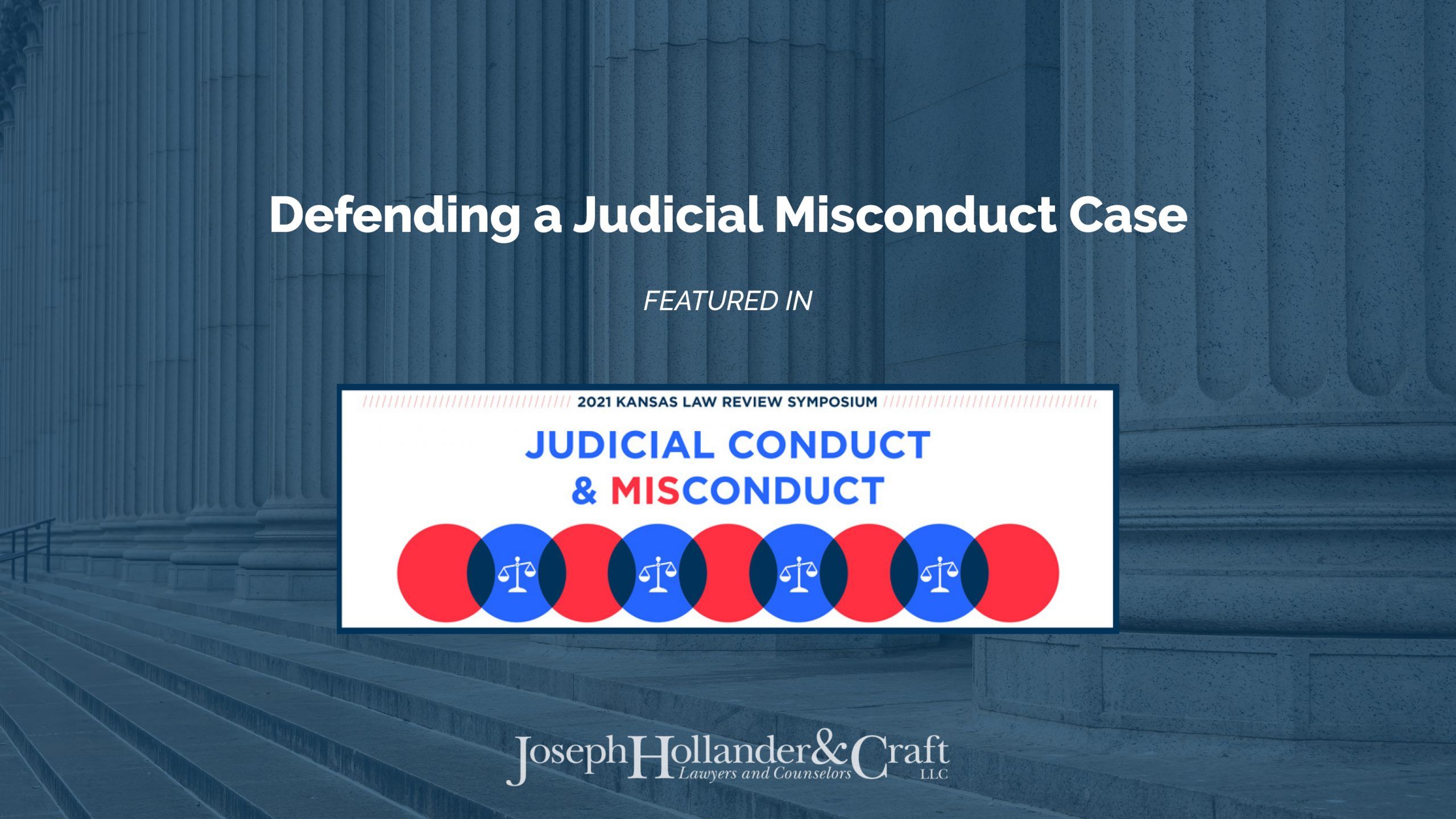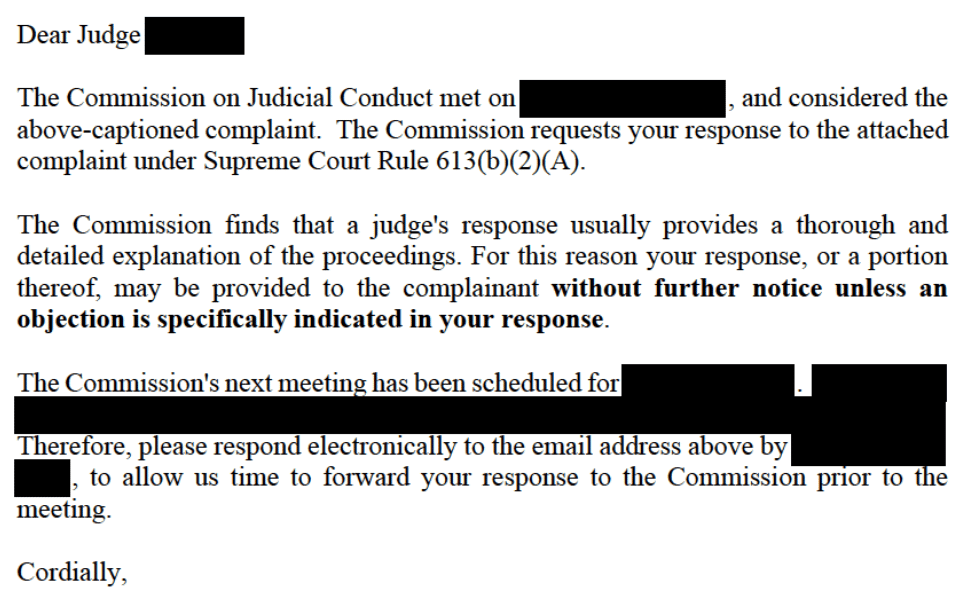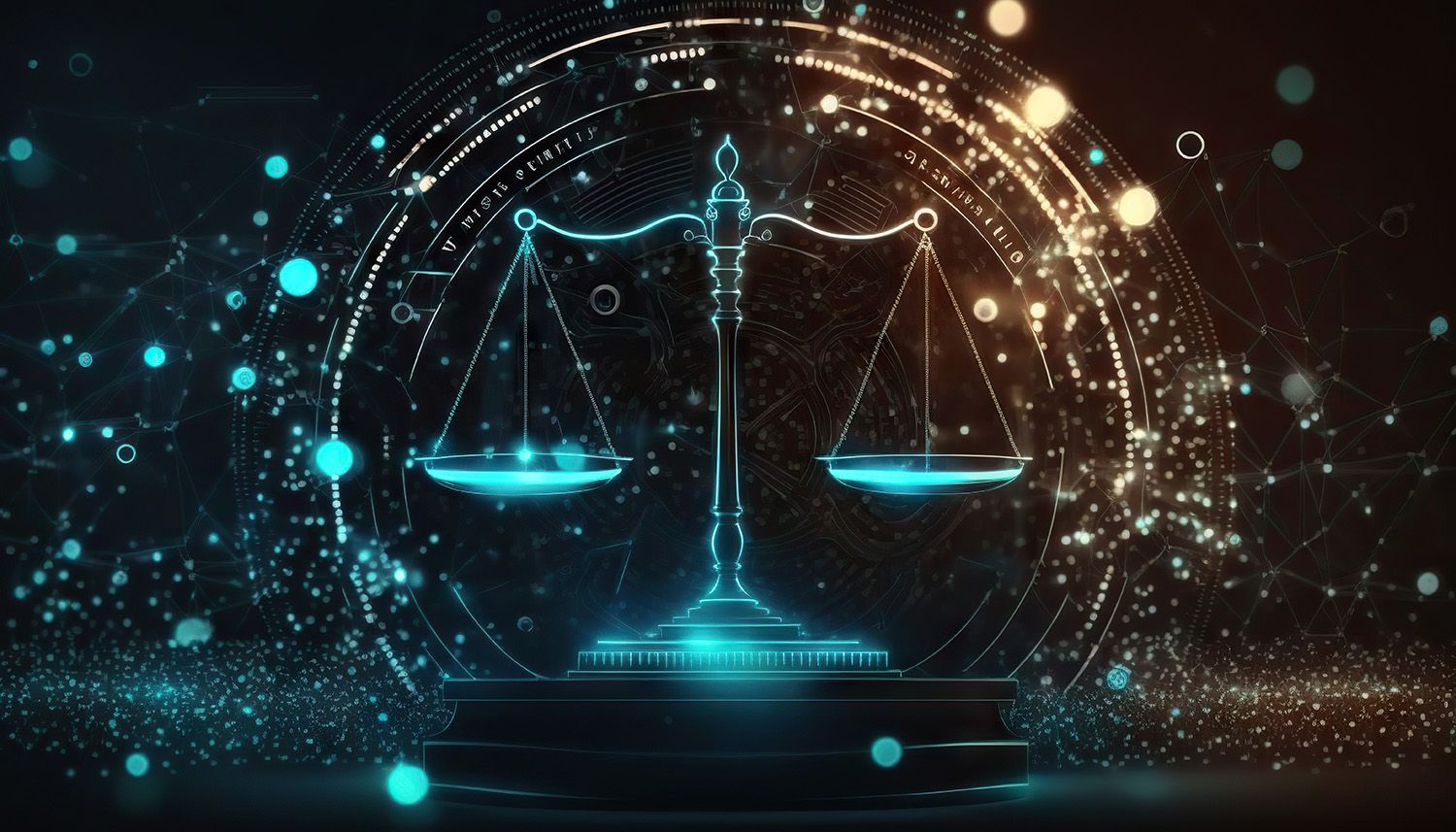Featured Topic
Defending a Judicial Misconduct Case
Just as attorneys tend to focus on upholding their substantive duties under the Code of Professional Responsibility over the procedure that ensues should they be accused of falling short, judges tend to focus on the substance of the Code of Judicial Conduct rather than what proceedings will follow an allegation of misconduct. This prioritization is certainly reasonable. But it leaves many on their heels when faced with a complaint.
Those who attended the 2021 Kansas Law Review Symposium on “Judicial Conduct and Misconduct: A Review of Judicial Behavior from Sexting to Discrimination” are ahead of the game after receiving a crash course in the practical realities of judicial conduct proceedings. Among the symposium’s speakers was Christopher Joseph, who has defended numerous judges before the Kansas Commission on Judicial Conduct and before the Kansas Supreme Court. In his presentation, Chris walked the audience through the various steps in the judicial disciplinary process and provided important commentary for any judge who is the subject of a misconduct complaint. The substance of his remarks is presented below.
The goal of the Code of Judicial Conduct is to maintain “an independent, impartial, and competent judiciary, composed of men and women of integrity, [which] will interpret and apply the law that governs our society” (Rule 601B, Preamble). While much of the Code focuses on a judge’s conduct as a judicial officer, certain regulations apply to a judge’s personal life. And anyone, whether they know the judge in a personal or professional capacity, can file a complaint with the Commission on Judicial Conduct.
Usually, a judge first learns a complaint has been filed when he or she receives the following letter from the Commission:
While it is upsetting to be notified of a complaint, the letter is quite friendly. Indeed, one who is unfamiliar with the disciplinary process may not appreciate the importance of the response the letter requests or the severity of the matter at issue. But this is the stage at which a judge should seek independent advice—to draft a response, to assess the gravity of the complaint, and to prepare for what is to come.
The Inquiry Panel that receives the judge’s response has the power to resolve a complaint without referring it for formal proceedings before the Hearing Panel. Pursuant to Rule 614, an Inquiry Panel may dismiss a complaint outright (sometimes offering informal advice), issue a letter of caution, or issue a cease-and-desist as an alternative to referring the matter for formal proceedings.
In addition to determining the duration of the matter, the Inquiry Panel’s decision can determine the publicity the matter receives. Except as publicized by the complainant or the judge, the matter will remain confidential from filing through the point of dismissal, the issuance of a letter of caution, or the issuance of a private cease-and-desist order. But a public cease-and-desist order and formal proceedings—including the formal complaint, any documents filed with or issued by the Hearing panel, any hearing before the Hearing Panel, and the final disposition—are not confidential. See Rule 611.
If the matter is referred for formal proceedings, the Examiner who investigated the complaint for the Inquiry Panel prosecutes the case before the Hearing Panel:
(a) Role of the Examiner. The Examiner acts in a dual capacity as follows:
- When an Inquiry Panel is considering a complaint against a judge, the Examiner assists the Inquiry Panel, when requested, in investigating the complaint; and
- After formal proceedings are instituted, the Examiner prosecutes the formal complaint before a Hearing Panel and in any proceedings before the Supreme Court.
Rule 606. The Examiner has the burden to prove all Code violations charged by clear and convincing evidence. If the panel finds the charges have been proven, it must:
- admonish the respondent;
- issue a cease-and-desist order;
- recommend to the Supreme Court a discipline of public censure, suspension, or removal; or
- recommend to the Supreme Court compulsory retirement of the respondent.
Rule 619. An admonishment or a cease-and-desist order is final. But any recommendation to the Supreme Court means the case goes on.
Even a judge who accepts the Hearing Panel’s findings of fact, conclusions of law, and recommended discipline must appear before the Supreme Court for imposition of discipline. A judge who disputes the findings or conclusions must brief the matter as in an appellate action. After considering the Hearing Panel’s findings, conclusions, and recommendations as well and the arguments of the Examiner and the judge, Supreme Court may then:
- refer the matter back to a Hearing Panel for any further proceedings as directed by the court;
- reject the Hearing Panel’s recommendations;
- dismiss the proceedings;
- order discipline;
- order compulsory retirement; or
- make any other disposition as justice requires.
Rule 620. Proceedings before the Supreme Court are public.
The substantive directives of the Code of Judicial Conduct should be every judge’s focus. But, when faced with an allegation of misconduct, knowledge of the disciplinary process can be invaluable.
About Joseph, Hollander & Craft LLC
Joseph, Hollander & Craft is a premier law firm representing criminal, civil and family law clients throughout Kansas and Missouri. When your business, your freedom, your property, or your career is at stake, you want the attorney standing beside you to be skilled, prepared, and relentless. From our offices in Kansas City, Lawrence, Overland Park, Topeka and Wichita, our team of 20+ attorneys has you covered. We defend against life-changing criminal prosecutions. We protect children and property in divorce cases. We pursue relief for victims of trucking collisions and those who have suffered traumatic brain injuries due to the negligence of others. We fight allegations of professional misconduct against doctors, nurses, judges, attorneys, accountants, real estate agents and others. And we represent healthcare professionals and hospitals in civil litigation.













